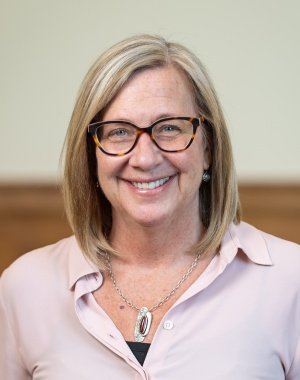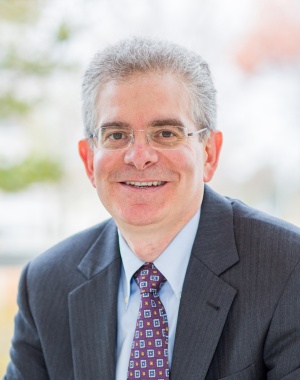
Though millions of Americans still lack health insurance coverage, federal healthcare reform has stagnated since the passage of the Affordable Care Act. Facing the prospect of continued federal inaction, policymakers at the state level are exploring the possibility of implementing single-payer healthcare systems on their own. But do states have the capacity to undertake the fiscal and administrative challenges of major healthcare system overhaul? The Ford School of Public Policy brought together several state policymakers to discuss some of the challenges and opportunities associated with this approach.
Michigan State Representative Carrie Rheingans argued that the most important aspect of single-payer is its potential to advance access to healthcare as a human right: “It’s more equitable, it's more fair, and I think Michiganders deserve it. We deserve to be able to live our lives without wondering whether or not we can afford to call an ambulance or go to the hospital, whether or not we can afford our meds, whether or not we have to try some meds that we haven't tried before, just because our coverage says we have to.”
Ohio State Representative Michele Grim noted that a single-payer system could also yield practical benefits, such as increasing simplicity for patients and providers, reducing administrative burdens associated with complex insurance structures, and making public investments more efficient for improving public health outcomes.
However, Vermont’s struggle to implement single-payer demonstrates that making this reform a reality is not without significant challenges, even when political opportunity exists. Robin Lunge, who served as Vermont’s Director of Healthcare Reform during an attempt to implement single-payer in 2011, said that rollout was hampered by several factors, such as increased tax burden on small businesses, job loss in the health insurance sector, and opposition to change. Despite these setbacks, Vermont has continued to progress towards near-universal coverage using a patchwork of Medicaid expansion waivers and programs.
Indeed, Lunge maintained that in order to achieve effective reform, “you just have to be willing and able to politically compromise to get a better system, that may not be the ideal system.” When asked what advice she would give to other states looking at single-payer proposals, Lunge emphasized the importance of understanding local context, urging policymakers to “know your tax base and your business community so that you really understand who are the winners and losers under a new financing plan.”
Ford School Professor Paula Lantz noted that the vast majority of academic studies that have looked at implementing single-payer systems have predicted overall savings of around 3%. "There's three main reasons that most of the models predicted there would be a net savings in what a population would spend on healthcare. Number one, a reduction in administrative costs on the insurance side, both for payers and providers. And the mean across the studies was about 9% reduction in cost. And then also decreased drug and medical device prices and mostly from negotiating better costs. And also some of the studies predicted a small decrease in what is spent on healthcare because of decreased amounts of fraud and abuse within healthcare insurance," she noted. She said every assumption in those models needs to be tested and measured, and said the politics and economics of moving the needle on many of the reforms would be difficult.
Moving forward, Representative Rheingans remains committed to working out all the thorny fiscal and implementation details of Michigan’s single-payer healthcare proposal. She believes that Michiganders will be ready to adopt a single-payer system within the next decade, so she wants to be as prepared as possible: “When the public tide catches up to us, we'll be ready for this to happen.”
You can see the event here.
This article was written by Rebecca Coyne.

